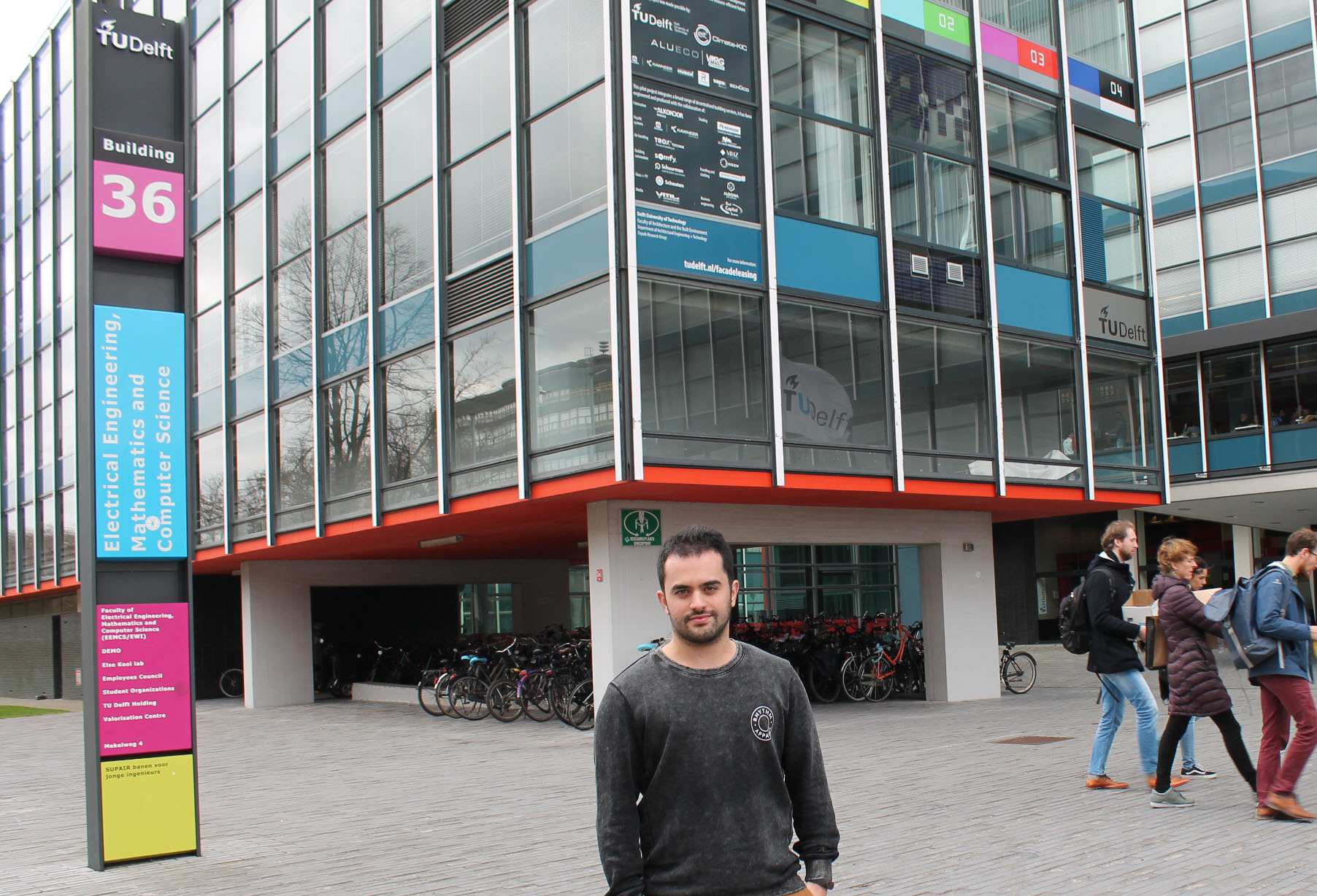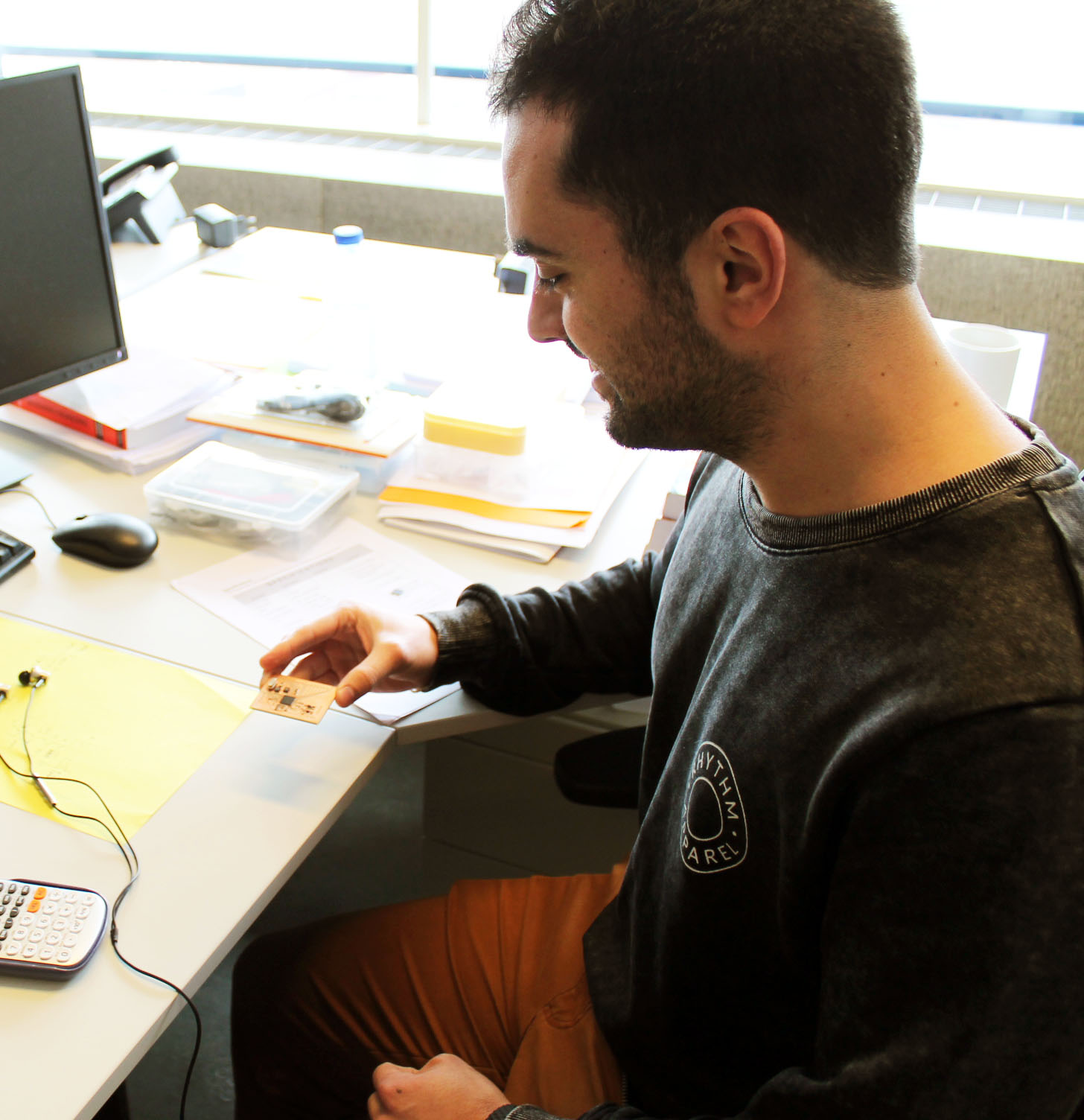Master student Alberto Gancedo from Spain got the opportunity, via Delft University Fund, to start his Master’s programme Microelectronics at TU Delft in September 2017. Besides studying, he is also working on his own project ‘Amplitude-integrated EEG measurement system (aEEG)’. Alberto’s goal: to develop a small, portable and cheap monitoring device to detect babies unusual brain activity directly after birth.
When unusual brain activity can be detected at an early stage, than early action can take place to limit or even prevent the damage. Alberto started this project during an internship for his Bachelor study. He now wants to take the project to a higher level and get everything out of it: 'My motivation? I just love working on a project where the social impact is so clearly present .'
Alberto felt himself at home in the Netherlands almost right away. ‘The best part of the Netherlands is the fact that it is quite easy to adapt to the country, nearly everyone speaks English which makes everything a lot easier. I also really enjoy the multicultural environment and the quality of education at TU Delft.’
During the last couple of months, Alberto mainly focussed on combining his intensive Master’s programme with working on his aEEG project. By now, Alberto has found a good balance in dividing his hours between studying and working on his project. He has already made progress with his project:
‘As of today, there is a working analog board that is the responsible of the measurements, and a digital board prepared for testing and debugging. Once it can be ensured that the digital board is working as intended, I can start to develop the code for this board in order to prepare it for the live measurements.’
Alberto expects to be able to carry out the first test measurements in the summer of this year. By then, he really hopes to have proof that his system works. Through his supervisor prof.dr. Wouter A. Serdijn, he already has a network of doctors and hospitals in the Netherlands. Once the evidence is there, Alberto will focus on the implementation of his system in a hospital.
Alberto's aEEG project is made possible by donations from EEMCS alumni, initiated by Delft University Fund. Because EEMCS alumni gave Alberto this opportunity, he can now work towards his goal: 'to make the aEEG system available for hospitals in developing countries who cannot afford the current large and expensive measurement systems’.


